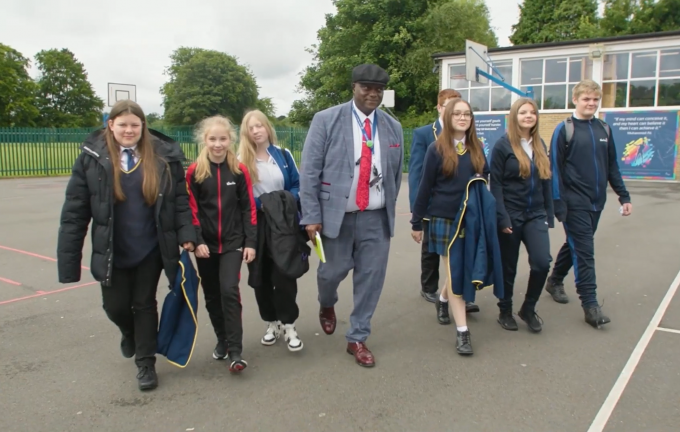When children and young people return to school or college after a break, it’s key to help them settle back in as quickly as possible so that they’re in the right frame of mind for learning. This can be a challenge, especially as some may also experience anxiety and unease about the return.
A relational approach to establishing rules and routines
Rules, routines and boundaries are key to fostering a sense of belonging because they create a structure and familiarity that help children and young people to feel safe and secure.
But first, we must have a foundation that’s built on trusting relationships with them. Otherwise, children and young people will feel a sense of disconnect with the adults, leaving them at threat of feeling unsafe. When this happens, the threat response is triggered which interrupts their ability to listen, to focus, to learn and to retain learning.
Thrive’s Head of Product and Innovation, Viv Trask-Hall, said: “Everything flows from that sense of being welcomed and known. Having their needs met, feelings of safety and knowing that they’re special and unique in the eyes of somebody.”
Having those connections with an adult that are reliable and consistent, together with familiar routines and structures help to increase a child’s sense of belonging.
Laura Nicholson, Thrive Trainer, added: “We all feel comforted and confident with familiar routines and structures. A young person’s sense of belonging is increased through the knowledge of; ‘This is how we do things here’ enabling them to trust in its structure.”
Practical tips for implementing structure after the break
Morning meetings
Introducing a morning meeting is a great way to create a structure where everyone comes together and can be seen. It’s a great opportunity for children and young people to share and ask questions and it’s a time to spend time bonding before the lessons start. You can use the time to share information about the structure of the day, perhaps with a visual timetable, and prepare them for any changes. This will help with creating a routine and giving children and young people the confidence of knowing what is happening throughout the day.
'What Could We Do With...'
The game ‘What Could We Do With...’ is a great way to implement a bit of fun and playfulness, and a chance for children and young people to enjoy spending time together in a non-competitive way. In this game, the adult presents a random object, like a pineapple, and asks the pupils ‘What can we do with it?’ The children can come up with any answers they like, as silly as it might be. A game like this eliminates the risk of shame of getting the answer wrong, and laughter can unite the group. You could present a different object every day, for a special moment of fun to look forward to. It also offers some predictability of what’s coming up in the day. Consider scheduling the sessions at a consistent time and in the same place to develop trust and safety.
Now and Next boards
A Now and Next board is a visual tool that displays what the pupil will be doing on a given day. It will include what tasks they need to work on in the present, and then what’s coming next. This can provide an excellent structure for the day and can reduce anxiety around coming to school that may be driven by not knowing what to expect.
What’s Your Anthem?
Another tip for helping to set structure and foster a sense of belonging is to have a session where you create your own class anthem. Children and young people could also choose a playlist that they can listen to at certain times of the day. Perhaps the session could be at the end of the day, to support the transition from school to home. Listening and singing music together releases feel-good chemicals, that aid our wellbeing and is an opportunity to unite everybody.
If you’d like to learn more on this topic, watch our Thrive in Action webinar ‘How to quickly create a sense of belonging’. We cover the back-to-school challenges pupils typically grapple with and how to overcome them.
New to Thrive?
If you'd be interested in learning more about the 75,000+ educators transforming behaviour, attendance and attainment by supporting wellbeing and easing anxiety using Thrive, schedule a zero-obligation Discovery Call with a member of the team using the button below.

_680.png)




_680.jpg)